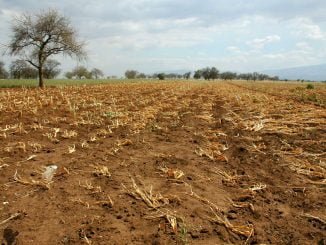
Kampala, Uganda | URN | The National Environment Management Authority (NEMA) has now extended its operations to enforce non littering laws in Uganda through having litter bins to all petrol stations.
In a statement issued by the Berirega Akankwasah, the NEMA Executive Director, effective 1st May 2023, the authority will start enforcing the physical planning regulations of fuel stations.
“All fuel stations are required under the regulation 10 (2) of physical planning (planning conditions for location of fuel stations) regulation SI No. 31 of 2022, to have at least three well labeled litter bins, for biodegradable, non-biodegradable and toxic waste, accessible to all travelers and motorists,” read part of the notice.
According to Barirega, all environment and social impact assessments, audits and extension requests for fuel stations will evaluate compliance to this requirement, come next month.
This operation is a backup, to avoid roadside littering by public transport vehicles, says Naomi Karehako, the NEMA spokesperson.
Karekaho says: “These trash bins at the fuel stations are a requirement by law and the essence is to help public transporters dump rubbish which would have filled the bins inside their vehicles. This will avoid roadside littering because they will be sure of a trash bin at the nearby fuel station.”

She adds that any fuel station that will fail to comply with this regulation, will be penalized in accordance with the national environment management act of 2019, which put in place these regulations.
Anthony Ogalo, the general manager of The Association of Petroleum Marketing Professionals of Uganda (APMPU), told this publication that all companies have individual responsibility to implement the environmental and other regulations as required by law, for the good of the business, and the country as a whole.
Read Also: Private cars in Uganda exempted from trashcan penalty, not littering
“Everyone has to take responsibility for the environmental challenges of petroleum products, and that is what we are trying to bring to every dealer’s attention,” Ogalo says. “The petroleum supply act guides members of what is expected of them. The NEMA regulations are the guidelines on what to do. The onus is on the player to play by what is given in the law, or else that face its consequences.”
Our reporters visited several fuel stations in Kampala to find out how the regulation is being implemented, and the survey indicated that the big dealers had provisions for all the kind of waste mentioned in the regulation, but it was the opposite for most smaller dealers.
At some stations, managers were not even aware of what is required of them under this regulation. Some had only one trash bin, whereas others didn’t even know anything about the forthcoming enforcement operation.



